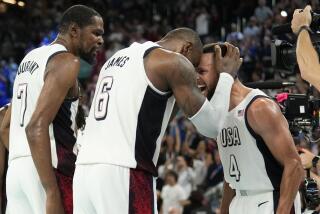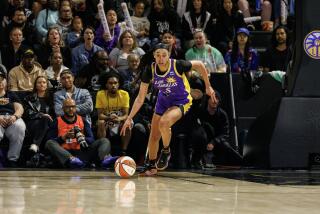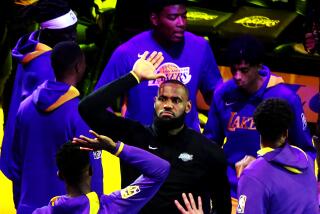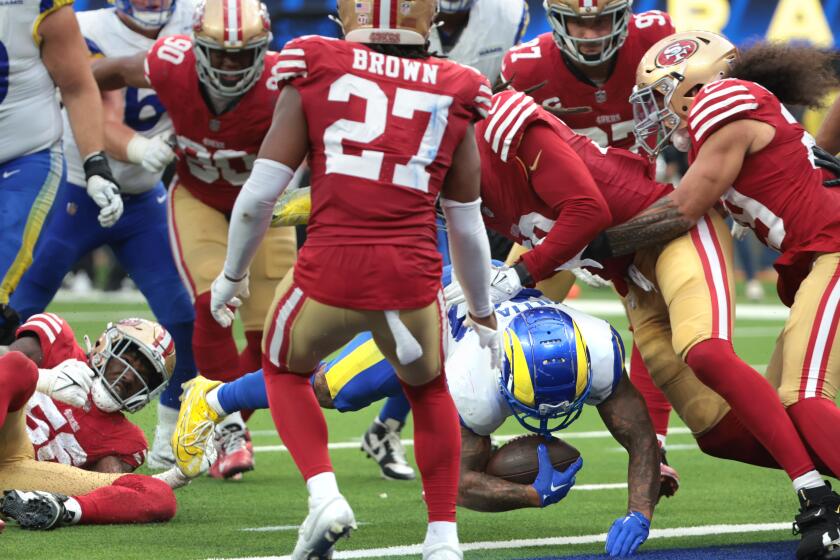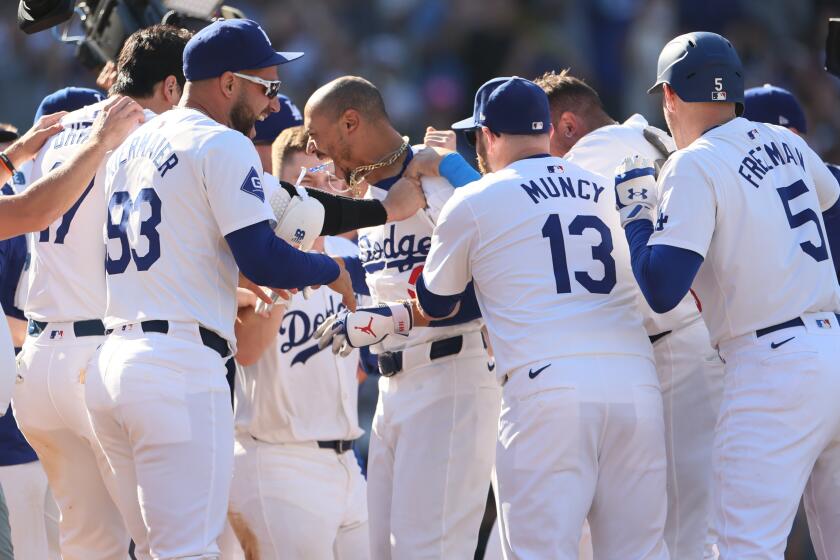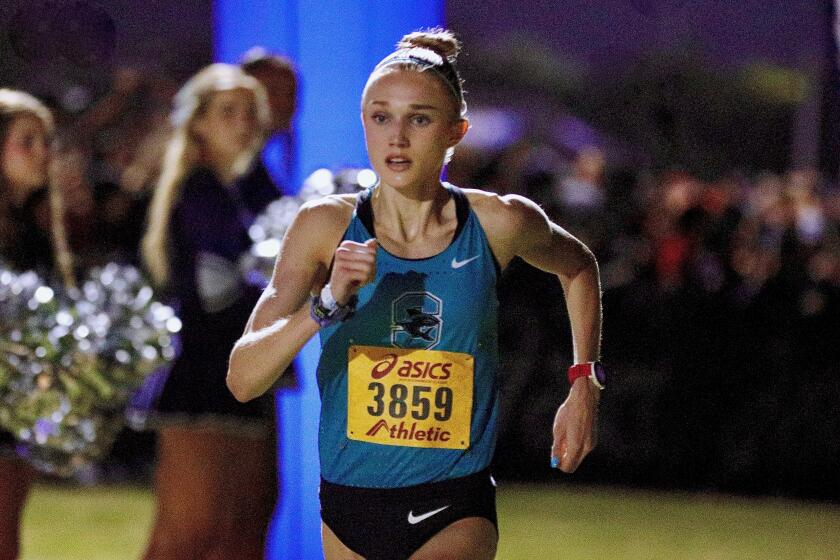Q&A: NBA players’ union executive director Billy Hunter
Billy Hunter, the executive director of the National Basketball Players Assn., emerged last week from a meeting with one-tenth of his 400-plus locked out players.
With NBA owners pushing hard on the idea they need to significantly slash payroll and institute a hard salary cap as a response to their claim 23 of 30 teams are losing money, Hunter’s players appear headed to a fall — and perhaps winter — without paychecks.
Player unity, then, is a crucial element of avoiding a salary free fall. After the session with players — who have already agreed to trim their share of basketball-related income from 57% to 53% — Hunter declared, “We dispelled the notion that the players aren’t together.”
How do you know that?
“By the fact that they’re standing here behind me now and what was said in that room. We know the owners are dug in . . . they’ve seen what has happened in hockey; that you can break the will of the players. We spent three years preparing these guys for this. I’m convinced they’ll hang in there, that they’ll stay the course for the year if that’s what it takes.”
So, the players have saved money for a lockout fund?
“I haven’t heard one guy yet say anything about their financial strain. They say they’re prepared. Plus, we know the league has to return 8% of last year’s salaries from an escrow fund for coming in lower than the [2010-11 salary] cap. That’s another $26 million to the guys to help them if the paychecks don’t start coming Nov. 16.”
What would you define as the biggest holdup to an agreement?
“The system. The players are insistent there be no hard salary cap. If they [owners] keep pushing for the type of salary cap they’ve indicated, we’ll give up any percentage to share in the league’s future growth. We’ve already said we won’t accept that proposal they’ve given.”
Several of your players are multimillionaires who aren’t exposed to the physical rigors other athletes are. If the fans are going to start choosing sides, why should they support the players?
“We have some of the same issues now that so many individuals in this country experience. Of course, the difference is the pay scale. But the system we operate under is pay for performance. These players are the widgets. They’re replaceable. They face competition for their jobs. They do endure injuries, their bodies take a toll. The back end of some of their lives will be difficult.”
I saw Compton’s DeMar DeRozan backing you at today’s news conference. What are your thoughts about a young man like him when you enter negotiations with the NBA?
“It’s about him, and so many others like him. They generate all the revenue for this league, and being paid what they deserve enables opportunities for their families who’ve never had — if not for basketball. I read where 50% of black males ages 17-52 are unemployed in New York. Maybe it’s not that bad everywhere else, but it’s severe. This will either have a tremendous positive or negative impact on determining unemployment in the arena, restaurant and service industries around where we play. Plus, community morale. Fans love their teams, and in these hard times, sports can be a major, important distraction from the real world that we should be committed to provide.”
What role will NBA superstars like Kobe Bryant and LeBron James play as this moves forward?
“They’ve been deeply involved in the meetings we’ve had. I know Kobe is intimately involved in interfacing with colleagues and sharing in a pool of revenue to help the others get through this. Kobe has volunteered to do that in the event others need, he and others are prepared to loan money if necessary.”
Doesn’t this back-and-forth about what percentage of salary cut the players will accept go away if the owners could establish a more effective revenue-sharing plan that, for instance, would allow other teams to enjoy some of the billions the Lakers will collect from their new television deal?
“The owners can figure that out, but the question is how they will adopt a new plan. They know a good, robust plan resolves these things, but we haven’t heard any specifics about what they’re considering. I will tell you I know this: We won’t be able to do a deal until that gets resolved.”
twitter.com/latimespugmire
More to Read
Go beyond the scoreboard
Get the latest on L.A.'s teams in the daily Sports Report newsletter.
You may occasionally receive promotional content from the Los Angeles Times.
